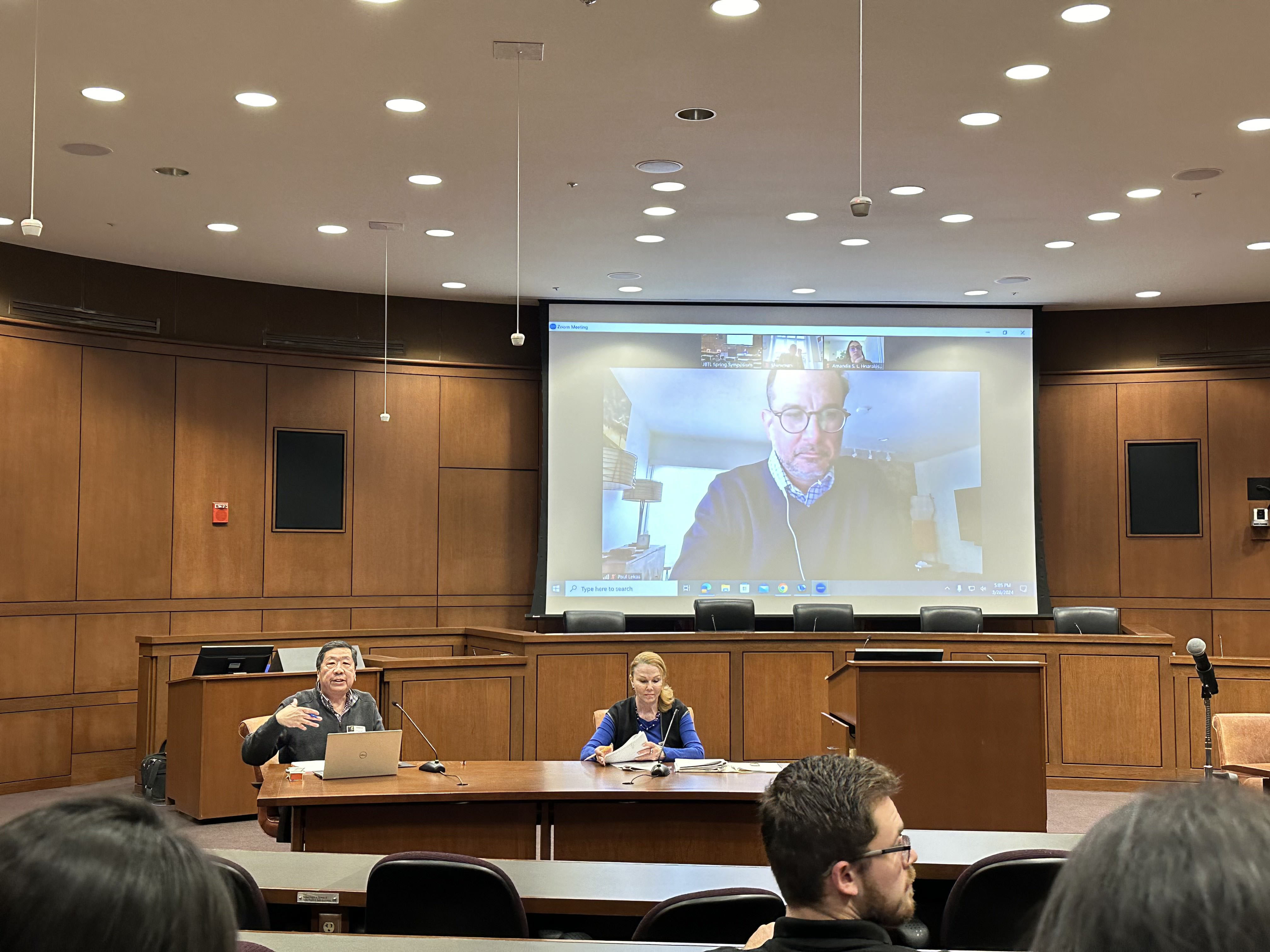The Journal of Business and Technology Law held its annual Spring Symposium on March 28: a captivating event examining the complex world of artificial intelligence (AI). The symposium explored two crucial topics: the implications of AI on cybersecurity and national security, and the concept of AI and legal personhood.
The first panel, focused on the implications of AI on cybersecurity and national security, featured esteemed speakers who provided valuable insights. Paul Lekas, SVP and Head of Global Public Policy at the Software & Information Industry Association (SIIA), offered a comprehensive overview of the current landscape. Jody Westby, CEO of Global Cyber Risk LLC, shared her expertise on global cyber risk, making for a well-rounded and informative discussion. Westby noted that while innovation happens within technology, our legal framework needs to be innovative to keep up. Challenges such as inconsistency of regulations, competition across borders, and lack of knowledge of laws by developers are just a few issues that the government and private sector faces. One highlight of the conversation was the possible new opportunities that legal professionals will have with the development of AI and regulations such as investment screening, outbound regimes, and counterintelligence defense.
The second panel, which discussed AI and legal personhood, was equally engaging. Nadia Banteka, Gary & Sallyn Pajcic Professor at Florida State College of Law, provided a deep dive into the philosophical and ethical aspects of AI and legal personhood by examining data available. John Weaver, Director of the Corporate Department and Chair of the Real Estate Practice Group and Chair of the Artificial Intelligence Practice at McLane Middleton, presented an analysis pointing out the assumption that only humans make decisions, yet historical ships were once given legal personhood. Tanner Mathison, Associate Counsel at the Office of the Director of National Intelligence and Professor at The George Washington Law School, presented thought-provoking insights into the practical and moral arguments on whether legal personhood is appropriate. His remarks derived from his comment published in Volume 19.1 of the Journal of Business and Technology, Recognizing Right: The Status of Artificial Intelligence. While all agreed that AI has a utility function, the question of whether AI should be given legal personhood was left to be answered another day.
Overall, the JBTL Spring Symposium was a resounding success due to the efforts of the JBTL staff spearheaded by Jessica Newman ’24. The event provided attendees with a deeper understanding of the existing and pending policies, legal challenges, and the possible implications of AI in the future. Newman noted, “The Symposium allows students to engage with superb legal practitioners and academics who daily entertain ideas on how Artificial Intelligence is transforming how we live, how we litigate, and how we secure our communities against rising threats. We are so thankful for their participation in this event.”

